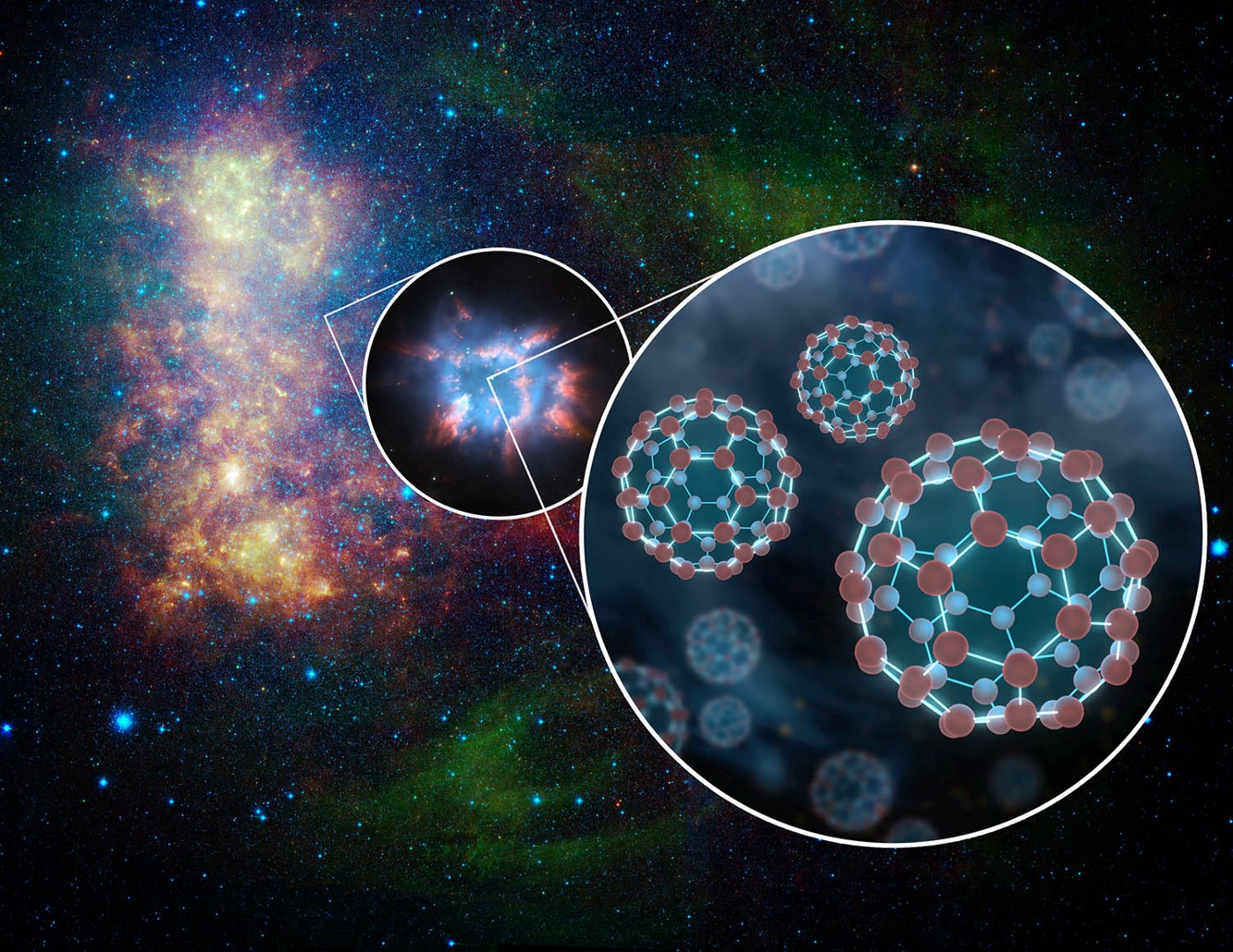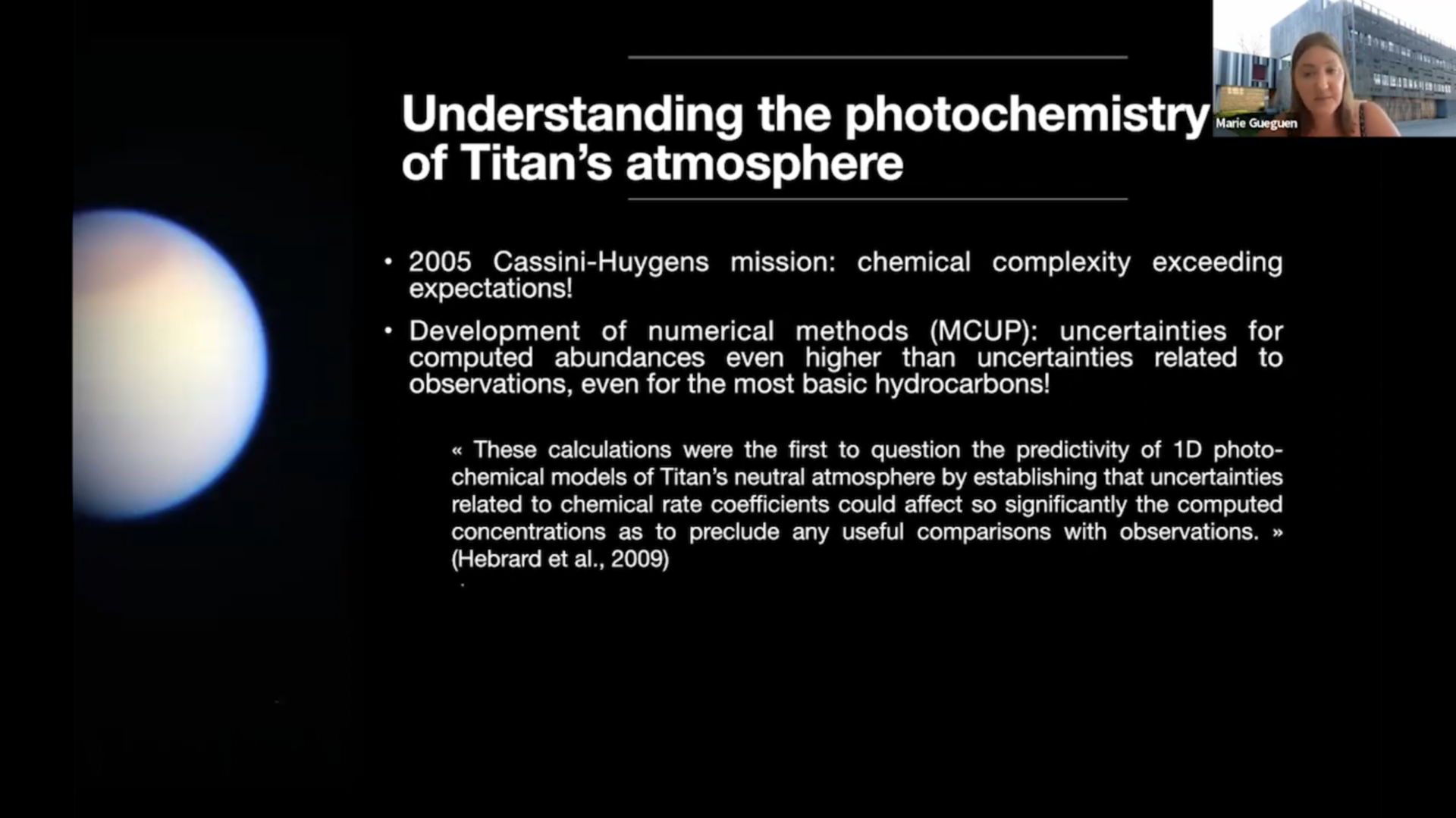by Marie Gueguen, on
Presentation of the event

Astrochemistry Discussions is a website about astrochemistry and whose objective is to facilitate communication between students, postdocs and researchers through online presentations in the form of videos.
The main topics are:
- Astronomy
- Theoretical and experimental physics and chemistry
- Philosophy of astrochemistry
On this website, M. Gueguen had the opportunity to present her work.
A Philosophical Perspective on Uncertainties and Model Evaluation in Astrochemistry - M. Gueguen
One of the core questions of philosophy of science is to analyze how different kinds of evidence bear on a theory. Testing whether a scientific theory is adequate amounts to extracting an observational consequence P from it and to confronting P with the available observations. If P is not observed, then the theory must be rejected. If the theory passes this reality check, it can be accepted (temporarily) as valid. This naive version of hypothetico-deductivism, although widely criticized and abandoned nowadays, has greatly shaped the way philosophers and scientists have thought about testing scientific models. Models were seen, and are still seen in many areas, as predictive tools whose adequacy can be validated and verified by checking whether they succeed in matching observations. Yet, this picture does not fit the way scientists have handled model evaluation in the context of high uncertainties, i.e, in a context where it is not clear how observations can be turned into evidence.
The aim of this talk is to analyse how astrochemists have evaluated their models in these cases, based on recent developments in this area. Astrochemical models, based on networks of chemical reactions relying primarily on extrapolated reaction rate constants, sometimes fail to reproduce observations. The spectroscopic observations, performed by ground and space-based telescopes, that permit to identify molecules in space and to derive the physical conditions in astrophysical media, can be both incomplete and uncertain, despite recent significant progress in the resolution of telescopes. Yet, models are indispensable to make the most of observations, to better target future campaign observations, to determine where better experimental data are needed and to motivate further theoretical developments. Thus, astrochemists have no choice but to develop methods to evaluate their models and decide how the disagreement between observations and models should be interpreted, i.e., should guide their future work, despite the uncertainties on both sides. In this talk, I present a philosophical analysis of such methods and how they allow us to address the following questions: How do scientists evaluate their model against observations when uncertainties are so high on both sides? How do scientists improve the accuracy of their models when it is not even clear what accuracy can possibly mean? When is a discrepancy an opportunity to improve a model and when is it a sign that something went wrong with its initial assumptions?
